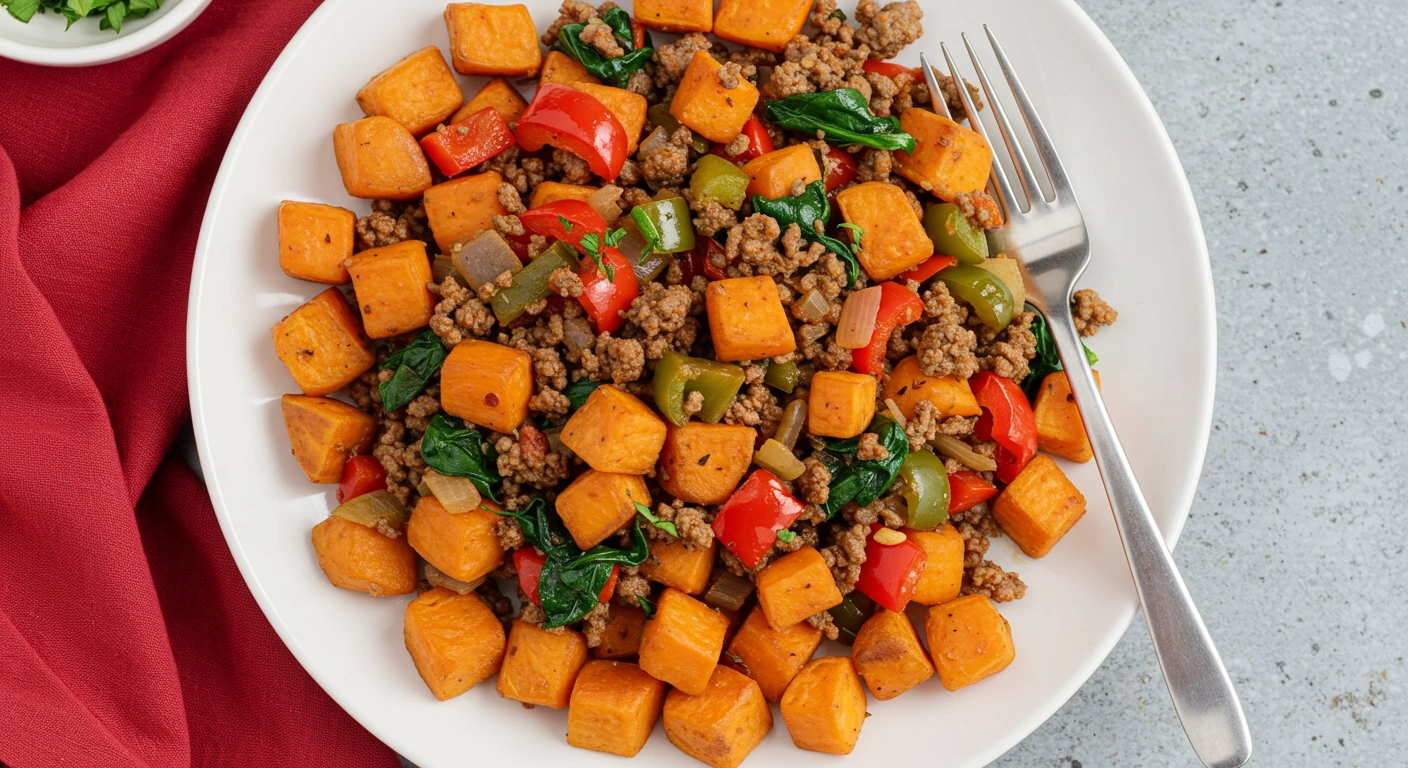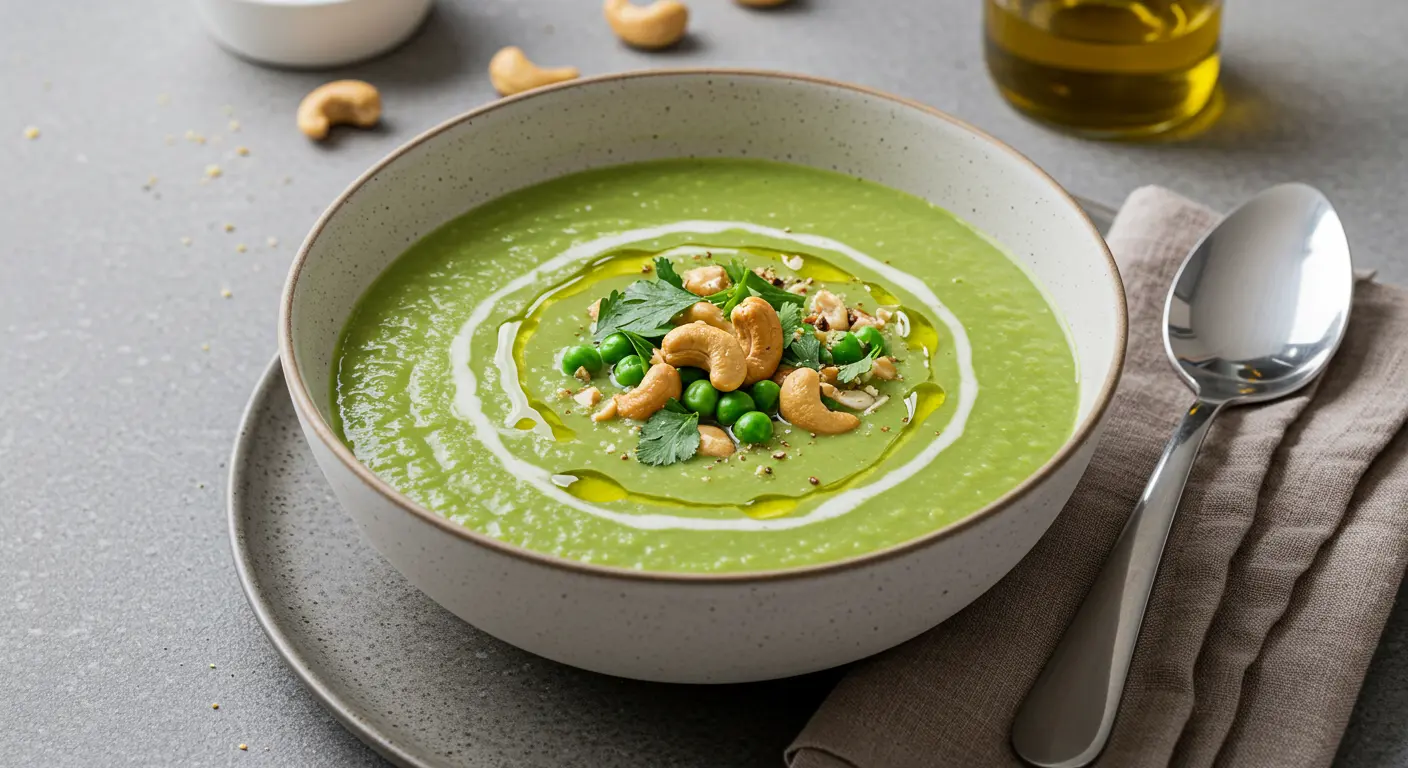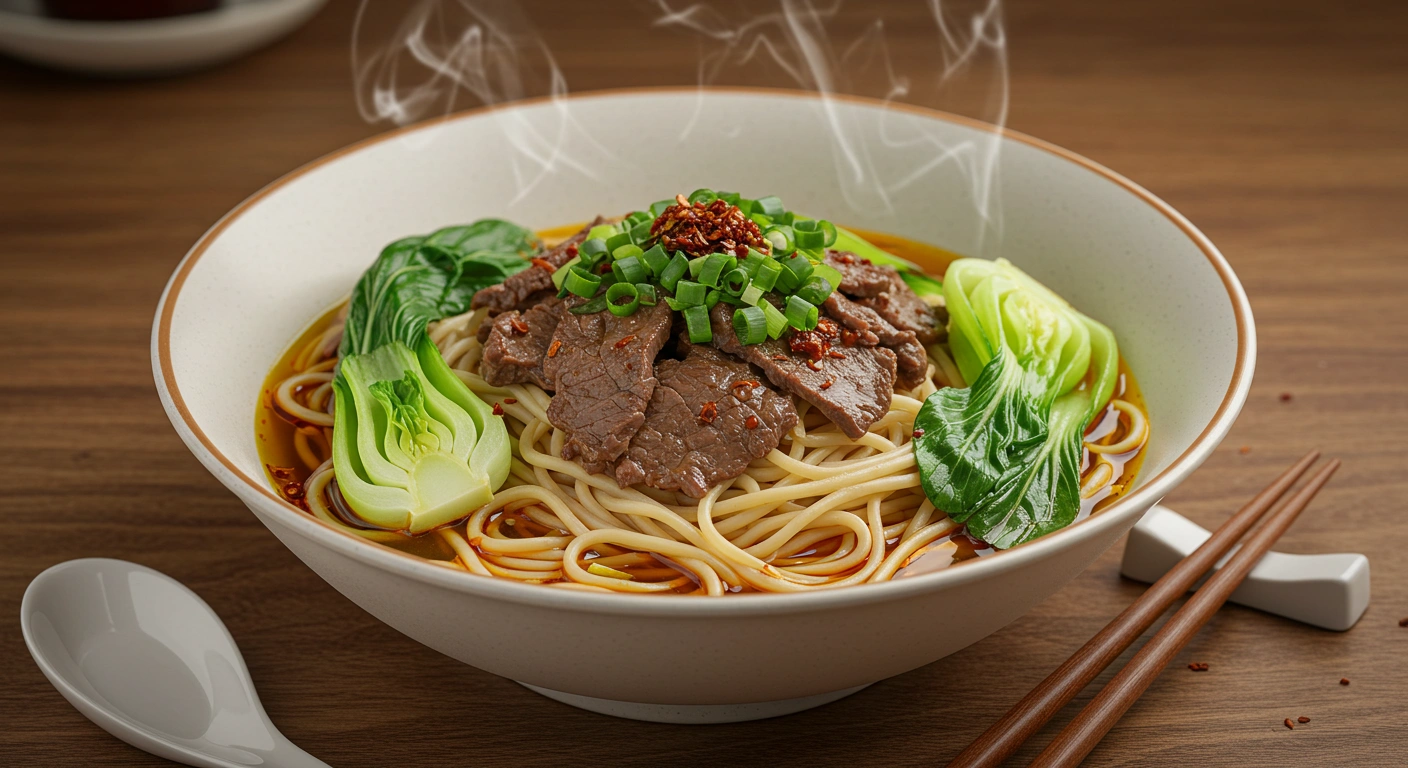The first time I tasted Katong Laksa, I was sitting at a bustling hawker stall in Singapore’s Katong neighborhood, the air thick with the aroma of coconut and spice. One spoonful of that creamy, fiery broth, paired with perfectly cut rice noodles, and I was hooked. Katong Laksa isn’t just a dish—it’s a cultural icon, a bowl of comfort that tells the story of Singapore’s vibrant food scene. Known for its rich coconut gravy, short-cut noodles, and bold flavors, this dish stands out among other laksa variations. Whether you’re a foodie, a home cook, or simply curious, this guide will walk you through everything you need to know about Katong Laksa—from its history to how to make Katong Laksa at home. Let’s dive into the world of this must-try Singaporean classic!

The History and Origins of Katong Laksa
Laksa, a beloved Southeast Asian dish, has roots that trace back centuries, blending Chinese, Malay, and Peranakan influences. But Katong Laksa? That’s a uniquely Singaporean story. Originating in the Katong district, a coastal area known for its Peranakan heritage, this dish emerged in the mid-20th century. Local food historians, like those cited in The Straits Times and Singapore’s National Heritage Board, point to Katong’s vibrant food stalls as the birthplace of this creamy, coconut-heavy variation.
Unlike other laksas with long noodles, this noudle soup is defined by its short, snipped rice noodles—designed to be eaten with just a spoon, no chopsticks required. This innovation is credited to hawkers in Katong who wanted to make the dish more accessible. Over time, Katong Laksa became a symbol of Singaporean identity, reflecting the nation’s multicultural melting pot. Today, it’s a dish that locals and tourists alike seek out, a testament to Katong’s enduring culinary legacy.
Key Ingredients: A Deep Dive
To master a Singapore Laksa recipe, you need to understand its building blocks. Here’s a detailed look at the essential ingredients for Katong Laksa and their roles in creating its signature flavor:
| Ingredient | Role in Flavor Profile | Sourcing Tips |
|---|---|---|
| Rice Noodles (Laksa Noodles) | Provides a soft, chewy base; cut short for easy eating | Look for fresh laksa noodles at Asian markets |
| Coconut Milk | Adds creamy richness and balances spice | Opt for high-quality . |
| Dried Shrimp | Infuses umami depth | Find at wet markets Singapore. |
| Chili Paste (Sambal) | Brings heat and complexity | Make your own |
| Laksa Leaves (Daun Kesum) | Imparts a unique, peppery aroma | Check herb sections at qsian market or grow your own. |
| Chicken or Prawns | Adds protein and heartiness | Fresh options at local wet markets . |
| Bean Sprouts | Contributes crunch and freshness | Widely available at supermarkets |
Substitutions: If laksa leaves are hard to find, cilantro can work in a pinch, though the flavor won’t be identical. For a lighter dish, use low-fat coconut milk, but expect a less indulgent texture.
The Authentic Katong Laksa Recipe (Step-by-Step)
Ready to try how to make Katong Laksa at home? This Singapore Laksa recipe serves 4 and takes about 45 minutes to prepare.
Ingredients
- 400g fresh laksa noodles, cut into 2-inch lengths
- 1 can (400ml) coconut milk
- 500ml chicken stock
- 200g prawns, peeled and deveined
- 100g chicken breast.
- 50g dried shrimp, soaked and ground
- 3 tbsp chili paste (sambal)
- 1 stalk lemongrass, bruised
- 2 tbsp laksa paste (store-bought or homemade)
- 1 cup bean sprouts
- 4 laksa leaves, finely chopped
- 2 boiled eggs, halved
- Salt and sugar to taste
Instructions
- Prepare the Broth: In a large pot, heat 2 tbsp oil over medium heat. Sauté laksa paste, ground dried shrimp, chili paste, and lemongrass for 3-4 minutes until fragrant.

- Build the Base: Pour in chicken stock and coconut milk. Stir well, bring to a simmer, and let cook for 10 minutes. Season with salt and a pinch of sugar.
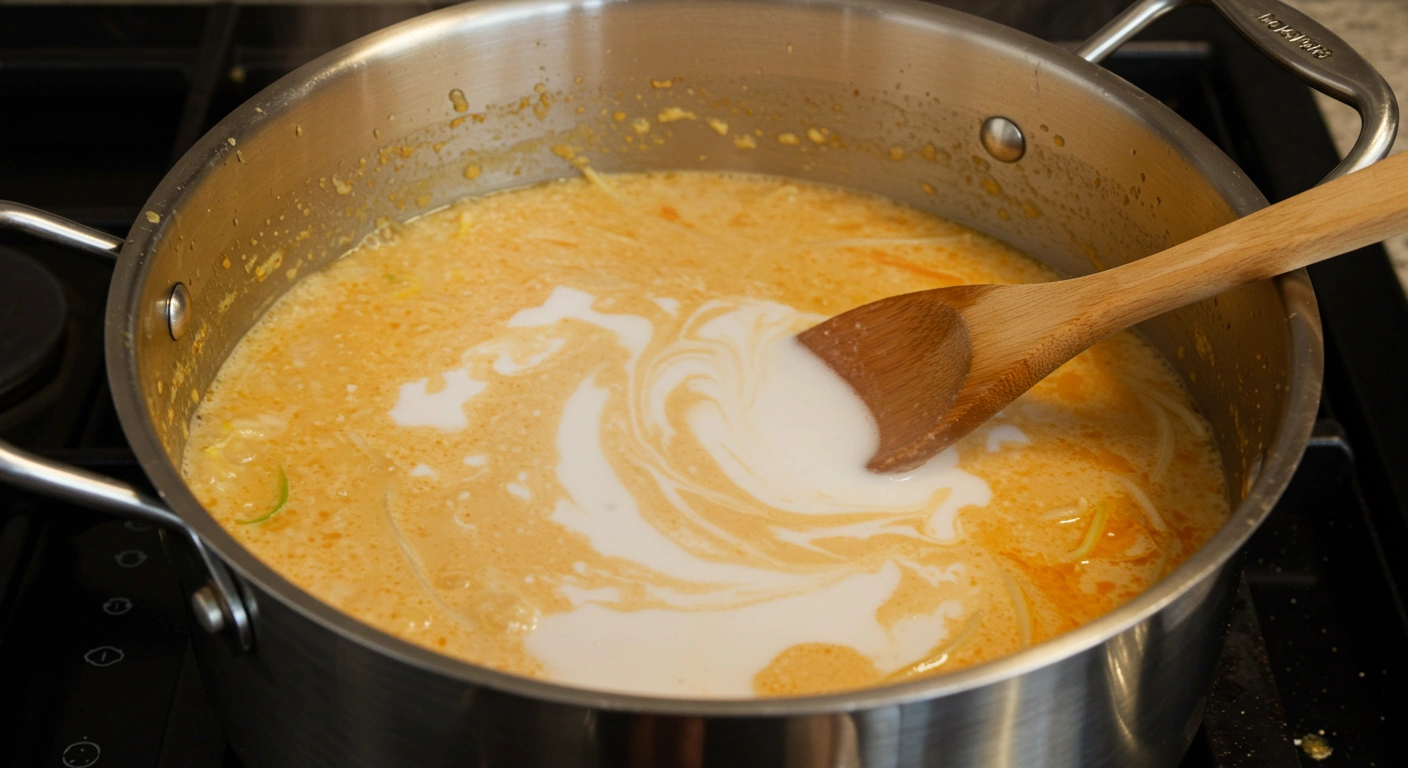
- Cook the Proteins: Add chicken breast and prawns to the broth. Simmer for 5-7 minutes until cooked through. Remove and set aside.

- Blanch Noodles and Sprouts: In a separate pot, blanch laksa noodles and bean sprouts in boiling water for 1-2 minutes. Drain and divide into 4 bowls.
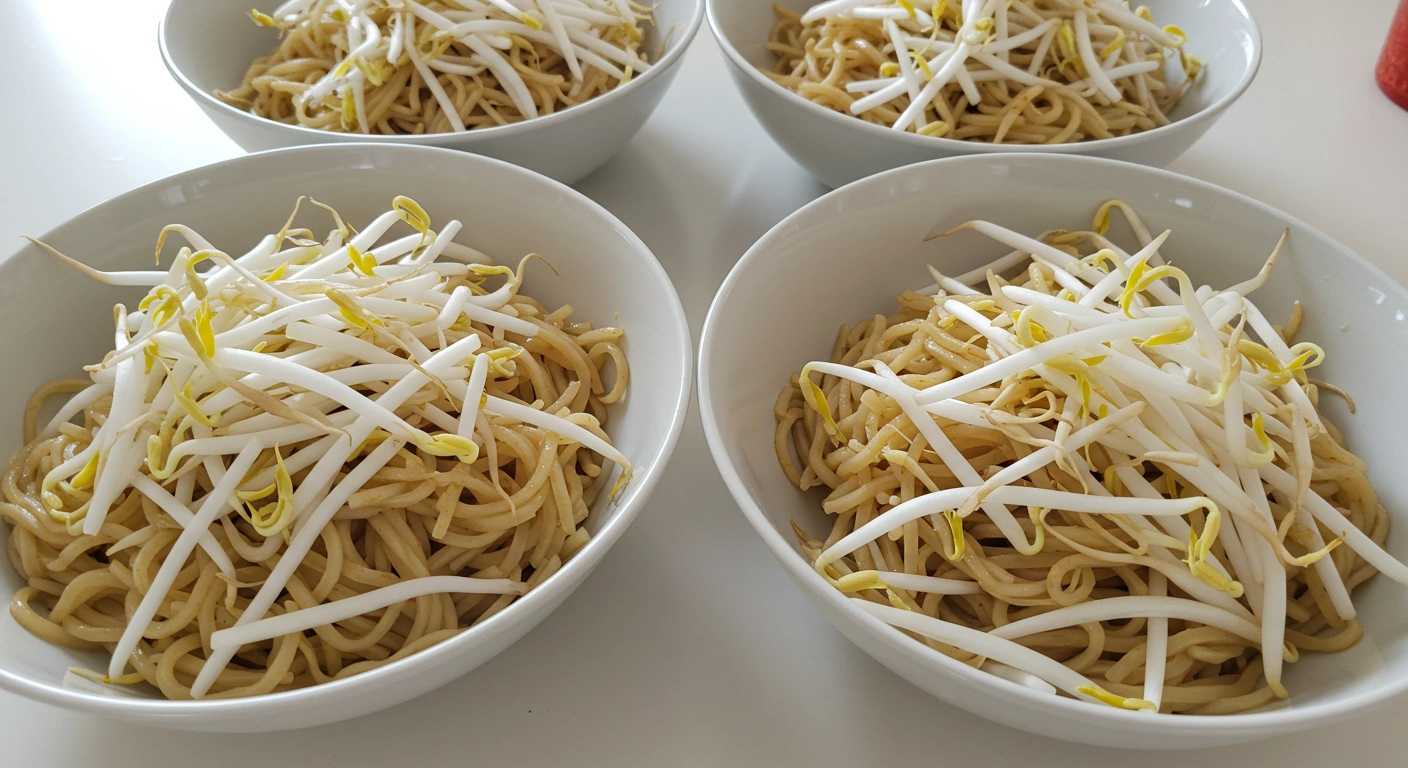
- Assemble: Ladle hot broth over the noodles. Top with chicken, prawns, boiled egg halves, and a sprinkle of laksa leaves.

- Serve: Add a dollop of extra sambal on the side for those who like it spicy.

Timing
- Prep: 15 minutes
- Cooking: 30 minutes
- Total: 45 minutes
Troubleshooting Tips
- Broth too thin? Simmer longer to reduce or add a bit more coconut milk.
- Too spicy? Dilute with extra stock or reduce chili paste.
- Noodles soggy? Blanch briefly and serve immediately.
Pro Tip
Toast the dried shrimp lightly before grinding for an extra layer of umami.
Variations and Adaptations
Katong Laksa is versatile enough to suit various preferences:
- Vegetarian: Swap chicken and prawns for tofu and mushrooms. Use vegetable stock instead of chicken stock.
- Vegan: Follow the vegetarian version and replace dried shrimp with miso paste for umami.
- Spicier: Double the chili paste or add fresh bird’s eye chilies.
- Milder: Reduce chili paste by half and skip extra sambal.
Serving Suggestions and Pairings
Serve piping hot with these traditional accompaniments:
- Otak-Otak: Grilled fish paste wrapped in banana leaves, perfect for dipping.
- Ngoh Hiang: Crispy five-spice rolls for added crunch.
Drink Pairings:
- Teh Tarik: Frothy pulled tea to cool the spice.
- Calamansi Juice: A tangy, refreshing complement.

Frequently Asked Questions (FAQ)
What makes Katong Laksa different?
It’s defined by its short-cut noodles, coconut-heavy broth, and spoon-only eating style, setting it apart from other laksas like Curry Laksa.
Is it spicy?
Moderately, but you can adjust the heat by controlling the chili paste.
Can I freeze Katong Laksa?
The broth freezes well for up to a month, but cook noodles fresh for the best texture.
Conclusion: Bring Katong Laksa to Your Table
From its rich history in Singapore’s Katong district to its irresistible blend of creamy coconut and fiery spice, Katong Laksa is more than a meal—it’s an experience. With this guide, you’ve got everything you need to master how to make Katong Laksa at home or hunt down the best bowls in Singapore. So, grab your ingredients, fire up the stove, and dive into this Singapore Laksa recipe. I’d love to hear how it turns out—leave a comment below or share your Katong Laksa creations on social media! Hungry for more Singaporean recipes? Check out our guides to Hainanese Chicken Rice and Chili Crab.
